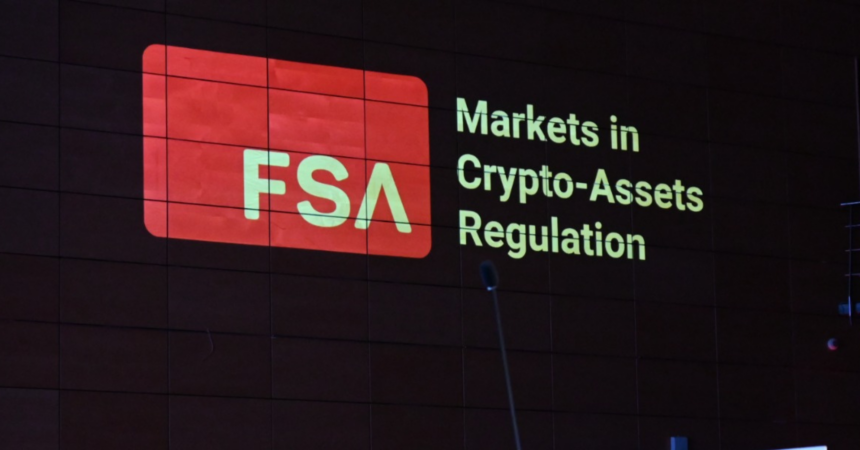In the wake of EU legislation proposed to regulate cryptocurrencies, the Malta Financial Services Authority is boasting of Malta’s leadership in regulating the sector despite the failure of the Blockchain Island project, which allowed unregulated companies to profit from a lack of oversight.
Cryptocurrency exchange companies such as Binance exploited Malta’s unregulated, crypto-friendly stance to set up shop on the island, processing billions without facing the scrutiny placed on other financial institutions, international reports have confirmed.
At a conference hosted by the MFSA discussing the EU’s upcoming Markets in Crypto Assets (MiCA) regulation, Malta’s fast-and-loose approach to attracting crypto companies in 2018 was downplayed.
The Authority’s CEO Kenneth Farrugia focused on laws introduced in Malta in 2018. The ‘regulations’ set up anti-money laundering, consumer protection and anti-market manipulation rules, but included a “transitory period, ” allowing companies to continue operating unregulated for two years until 2020.
The unregulated period saw a flurry of companies setting up shop in Malta. Companies such as Binance were later charged with securities fraud by the United States Securities and Exchange Commission for transactions made while operating in Malta.
Given the cryptocurrency sector’s extreme volatility and the quick turnaround nature of the various scams linked to it, companies essentially took advantage of the lack of regulation in those two years and then left.
Yet Farrugia lauded Malta’s efforts in the sector as “pioneering”.
MFSA’s Chief Officer Supervision Christopher Buttigieg confirmed in comments to the press that 85% of companies registered in Malta had left the island after the two-year transition period.
Cryptocurrencies such as Bitcoin and Ethereum are digital currencies that allow for near-anonymous transactions between holders through decentralised digital networks known as blockchains.
Cryptocurrencies reached the height of their popularity in 2021 and have been widely criticised for their use in illicit operations such as money laundering due to a lack of regulation.
The EU’s MiCA regulations are aimed at curbing abuses in the sector.
While EU-wide regulation for the sector has long been called for, and the cryptocurrency sector has lost much of its popularity following the collapse of crypto exchange FTX, the EU’s MiCA regulation is expected to enter into effect as of next year.














Not really true amd quite biased stance by Shift. True, 2018 was clumsy but who else had any proper regulation back then? France? No. Germany? Oh,no, not by far. UK? Please. UK cannot handle scams properly even nowadays. Complete and utter incompetence by the FCA (lack of investor protection genuine interest). You got some EU members simply banning crypto, as the most convenient option for their regulators, as it that would stop their citizens from using such services lol.
So, why would Malta be the bad player here? Think about it this way – most of the applicants failed at the end, why? Because they would not be allowed to become a fully fledged players without being fully compliant. This, dear Shift, shows commitment, not a fast track lane.
While most of the EU does little to nothing regarding MiCA, with only being pushed by ESMA, Malta has a ready made solution, that many are looking into now.
Use this advantage. Or remain a party/betting little island in the far dark corner of Europe, attracting mostly poor unskilled cheap labor to do the work you are too lazy to do your selves.
Your choice.
Not biased at all. The point, which I think you have missed, is that Malta ENTICED companies here with promises of XYZ, in the hopes they would stay- they enjoyed the propaganda of the Blockchain Island, but then were left with egg on their face when everyone upped and left. I wonder how much illicit money passed through Malta during that time and through these companies. We will never know.
What is your point? Some other countries don’t even have a crypto regulation. Illicot money is in the gray area totally, so which is worst?
I think it’s pretty clear.
Kenneth Farrugia and Christopher Buttigieg should be held accountable for squandering hundreds of thousands of taxpayers’ monies.They enjoy over a quarter of a million euro per year between them in salaries. What a disgrace.